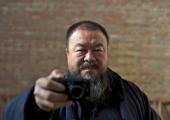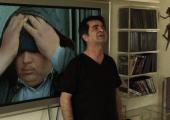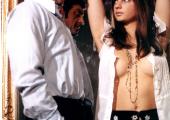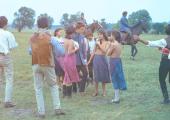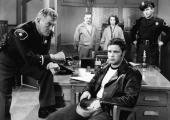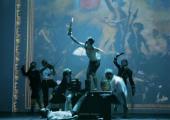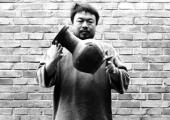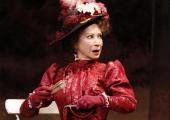George Bernard Shaw’s 1894 play was deemed too scandalous for public performance in Britain and was banned by the Lord Chamberlain until 1925, and its New York premiere in 1905 caused such outrage that the cast were arrested. Its offence was that Shaw was writing about the world’s oldest profession, prostitution, and alluded to a possible incestuous coupling. His greatest crime, though, was the play’s attack on Victorian hypocrisy.
For prostitution, of course, could not exist with what we now would call a solid customer base, and it was a profession allowed to flourish with the collusion of the Victorian establishment, some of whom were its most enthusiastic customers. And Shaw was also attacking capitalism's part in the sex trade; in the play’s preface he wrote that prostitution was caused: “... by underpaying, undervaluing, and overworking women so shamefully that the poorest of them are forced to resort to prostitution to keep body and soul together.”
The last sentence, sadly, could have been written last week and Mrs Warren’s Profession has so many other modern parallels - a fractured mother-daughter relationship, women being treated as mere playthings, among them - that it’s ripe for a revival, here in a Theatre Royal Bath production, directed by Michael Rudman.
As the play begins we see Mrs Warren’s daughter, Vivie (whose father is unknown), awaiting her homecoming with one of her mother’s many male friends, the artist Mr Praed; when she arrives, we realise mother and daughter are not close. Vivie has recently had the benefit of a Cambridge education (but no degree - this is some time before women were allowed to matriculate) and lives on a comfortable allowance, both paid for by her mother’s lucrative brothels on the Continent, of which she knows nothing. Shaw, for all he was a proto-feminist, draws Vivie rather coarsely; she has no truck with art or love and she describes her lifestyle as “work followed by a comfortable chair, a cigar and a whisky”.
Others gathered for the party are Sir George Crofts, a middle-aged bachelor who, we learn, lent Mrs Warren a large sum to establish her upmarket whorehouses (with a handsome 35 per cent annual return), the local vicar Mr Gardner, who has “a past” with Mrs Warren, and his handsome but feckless son Frank, who is swooningly in love with Vivie.
Mrs Warren (Felicity Kendal) decides to tell Vivie (Lucy Briggs-Owen) where her wealth comes from. At first this emancipated young woman is sympathetic, angry that her mother had to choose between an early death like her sister’s in a lead factory, or selling her body. But when she realises that the business still exists she becomes instantly judgmental and rejects her mother. Over the course of the evening both Frank and Crofts propose marriage to Vivie, but she rebuffs them - she would rather be alone than have a fool for a husband, or enter into matrimony with the cold-hearted Crofts, who presents the marriage contract as the same as that between a whore and her customer, but as more socially acceptable. He’s a charmer, no mistakin’.
The heart of the play is the fourth-act attempt at a rapprochement between Vivie and Mrs Warren, in which Shaw’s arguments are lucidly put as the mother seeks to justify her job and the daughter takes the high moral ground. Briggs-Owen (whose face could perhaps be a little less expressive at times) shows real spark in her exchanges with Kendal, who moves chillingly between guilt and rage as we realise the two women are equally stubborn in their refusal to compromise. In the end, Vivie rejects her mother and her would-be suitors and decides to make her own, independent - and highly moral - way through life.
Solid support for the two women comes from Mark Tandy as Praed and Eric Carte as Rev Gardner, while David Yelland’s Crofts grows more vile by each scene. The production’s highlight is Max Bennett as Frank, who shows a real gift for comedy.
I wish I could say I enjoyed this more than I did. Mrs Warren’s Profession is Shaw’s least didactic play and has plenty of sharp lines to keep one amused, the cast play their parts nicely and Paul Farnsworth’s sets look rather lovely. But it adds up to less than the sum of its parts, mostly because the direction is so plodding - there’s an awful lot of declaiming lines sitting down - and it can’t quite make up its mind whether it is Victorian melodrama, Chekhovian tragedy or Wildean comedy
OVERLEAF: MORE GEORGE BERNARD SHAW ON THEARTSDESK
